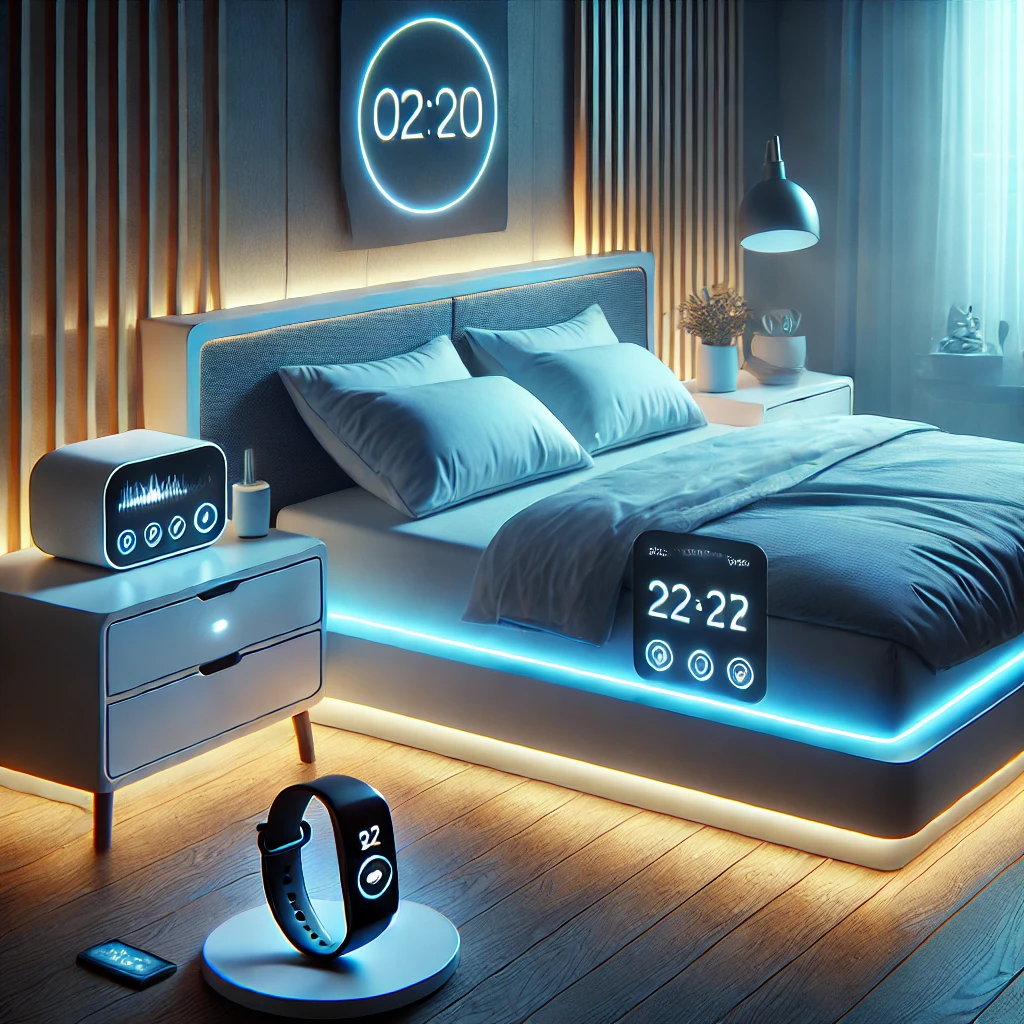Sleep Tech Devices for Better Night Rest
Table of Contents
Introduction
In our fast-paced modern world, achieving quality sleep has become increasingly challenging. According to the Centers for Disease Control and Prevention (CDC), in 2020, 14.5% of adults had trouble falling asleep, and 17.8% had trouble staying asleep. The repercussions of inadequate sleep are profound, affecting our physical health, mental well-being, and overall quality of life. However, advancements in sleep technology offer promising solutions to help individuals monitor, understand, and improve their sleep patterns. Today, we will delve into the latest sleep tech devices, supported by research and data, to explore how they can enhance our nightly rest.
The Importance of Quality Sleep
Before exploring the technological innovations designed to improve sleep, it’s essential to understand why quality sleep is vital. Sleep is a fundamental biological process that allows our bodies and minds to recover and rejuvenate. Chronic sleep deprivation has been linked to a host of health issues, including:
- Increased Risk of Chronic Diseases: Studies have shown that insufficient sleep is associated with a higher risk of conditions such as hypertension, diabetes, and cardiovascular disease. If you’re interested in how sleep directly impacts overall well-being, check out our post on the Health Benefits of Sleep: 10 Amazing Advantages.
- Impaired Cognitive Function: Lack of sleep adversely affects attention, alertness, concentration, reasoning, and problem-solving skills. Proper Sleep Hygiene Techniques can significantly improve sleep quality and cognitive performance.
- Mental Health Disorders: There is a strong correlation between sleep disorders and mental health issues like depression and anxiety. Students struggling with academic stress may find our 05 Mental Health Tips for College Students helpful in balancing sleep and well-being.
Given these significant impacts, it’s no surprise that the global market for sleep aids and technologies is expanding rapidly. According to a report by Coherent Market Insights, the global sleep app market was valued at US$1,070.9 million in 2023 and is projected to reach US$2,755.2 million by 2031, exhibiting a compound annual growth rate (CAGR) of 12.8% from 2024 to 2031.
The Rise of Sleep Technology
In response to the growing awareness of sleep’s importance and the prevalence of sleep-related issues, the sleep technology market has seen significant innovation. From wearable devices to smart home integrations, these technologies aim to monitor sleep patterns, provide insights, and create optimal sleep environments. Let’s explore some of the most impactful sleep tech devices available today.

Sleep Tech Devices for Better Night Rest
1. Wearable Sleep Trackers
Wearable devices have become increasingly popular for monitoring various health metrics, including sleep. These devices are typically worn on the wrist or finger and use sensors to collect data on movement, heart rate, and other physiological parameters.
- Examples: Devices like the Whoop 4.0, Oura Ring, and Google Pixel Watch offer comprehensive sleep tracking features. They monitor sleep stages, duration, and quality, providing users with detailed insights into their sleep patterns.
- Effectiveness: Research indicates that consumer sleep-tracking devices can effectively detect sleep and wakefulness. A study published in the journal Sleep found that these devices exhibited high performance in detecting sleep and performed equivalent to or better than actigraphy in detecting wakefulness.
2. Non-Wearable Sleep Monitors
For individuals who prefer not to wear devices during sleep, non-wearable sleep monitors offer an alternative. These devices are typically placed under the mattress or on the bedside table and use advanced sensors to monitor sleep.
- Examples: The Withings Sleep Analyzer is a notable non-wearable sleep monitor that provides in-depth analysis of sleep cycles, heart rate tracking, and snore detection.
- Market Growth: The non-wearable segment of the sleep tech market is experiencing growth, driven by consumers seeking unobtrusive monitoring solutions. The global smart sleep monitor market, which includes non-wearable devices, is projected to reach $43.42 billion by 2028, with a CAGR of 14.3%.
3. Smart Mattresses and Bedding
Advancements in sleep technology have extended to bedding products, with smart mattresses and pillows designed to enhance comfort and monitor sleep quality.
- Smart Mattresses: Brands like Sleep Number offer mattresses that adjust firmness and support based on individual preferences and sleep data.
- Smart Pillows: Innovations such as the ZEEQ Smart Pillow play music to help users fall asleep and monitor sleep patterns.
- Impact on Sleep Quality: By providing personalized comfort and support, these products aim to reduce sleep disturbances and promote deeper, more restorative sleep.
4. White Noise and Sound Machines
For many individuals, ambient noise can significantly impact sleep quality. White noise and sound machines are designed to mask disruptive sounds and create a soothing auditory environment conducive to sleep.
- Usage Statistics: A survey by the American Academy of Sleep Medicine found that over a third of Americans often experience sleep disruptions due to outside noise, with 18% using white-noise machines or apps and nearly half using fans at night.
- Effectiveness: While some studies suggest that white noise can help people fall asleep faster and reduce awakenings, the long-term effectiveness and impact, especially on children, remain under scientific debate.
5. Smart Alarm Clocks
Traditional alarm clocks can often disrupt sleep cycles by waking individuals abruptly. Smart alarm clocks aim to provide a gentler wake-up experience, often by simulating natural light or monitoring sleep stages.
- Sunrise Alarm Clocks: Devices like the Philips Wake-Up Light gradually increase light intensity to simulate a natural sunrise, helping users wake up more naturally.
- Sleep Stage Alarms: Some smart alarms monitor sleep cycles and wake users during lighter sleep stages, reducing grogginess upon waking.
- Benefits: By aligning wake-up times with natural sleep cycles, these devices can improve morning alertness and overall mood.
For those practicing Intermittent Fasting or engaging in activities like Cold Water Immersion, maintaining a proper sleep cycle can further optimize health benefits.
By incorporating sleep technology into daily routines, individuals can take proactive steps toward achieving better rest. Whether through wearable trackers, smart mattresses, or white noise machines, the future of sleep technology is shaping a new era of quality rest and improved well-being.
About Author
I’m Ayesha Iqbal, a student studying MBBS at Services Institute of Medical Sciences (SIMS) Lahore. I write about health for “GenZ Cares” because they care a lot about young people staying healthy. I do research and try new things to learn more about how to keep everyone feeling good. My articles focus on topics like nutrition, exercise, mental well-being, and ways to lead a healthier lifestyle. Through my writing, I aim to share valuable insights and practical tips that can make a positive difference in people’s lives.
Reviewed By

This article is reviewed by “Nashit Aliyan“, a certified Surgical Technologist from Government College University Faisalabad under section 2017-2021. I am 17A medical officer as well as Strategic and financial planning expert and Proficient in surgical field. Me and my team use the latest technology to perform complex surgical procedures. I recommend to “GenZ Cares” because they are really hardworking in their work and care a lot about youth to staying healthy.
